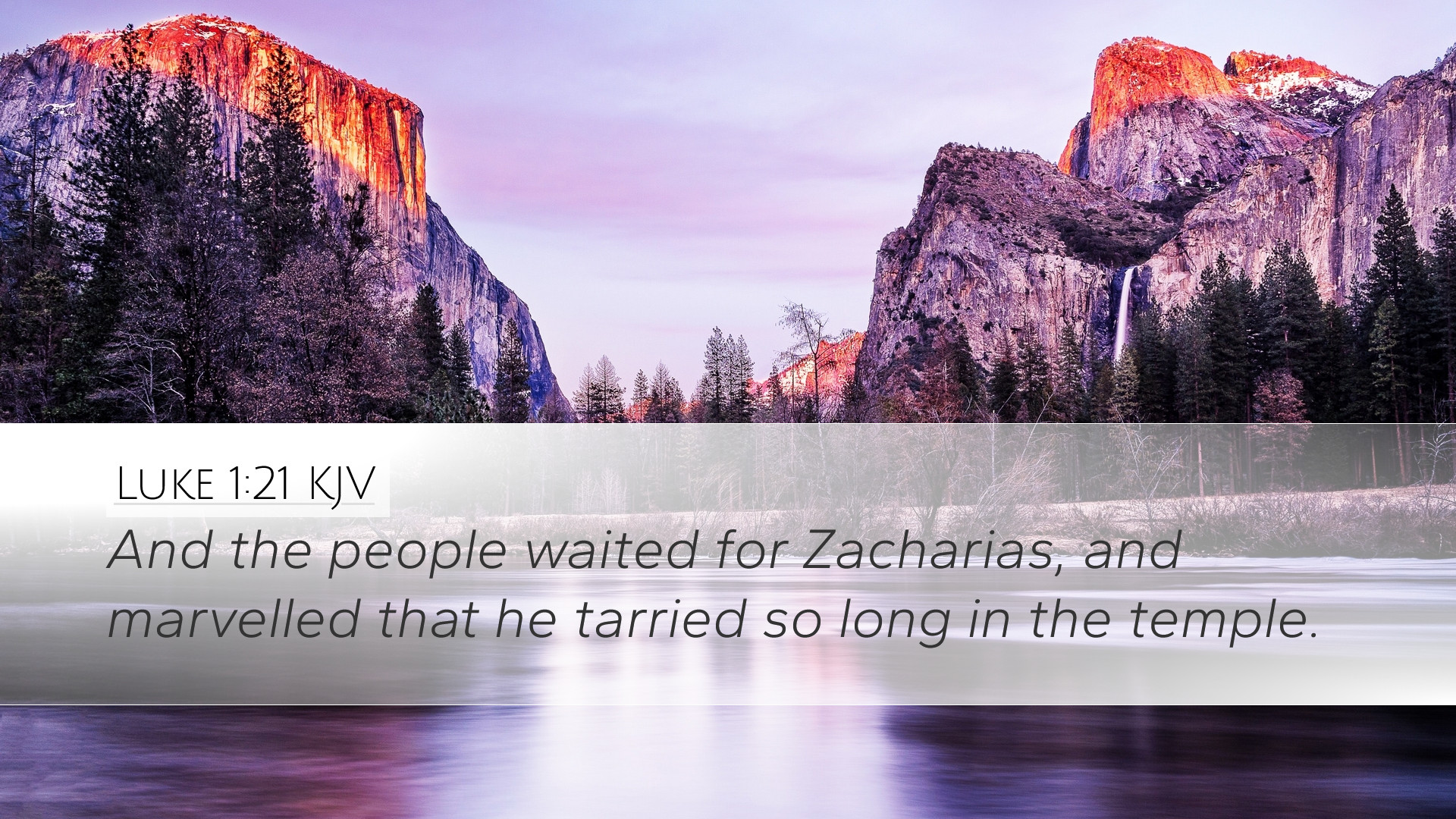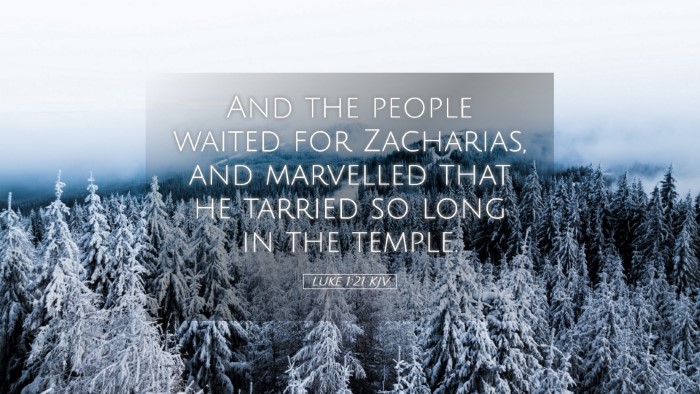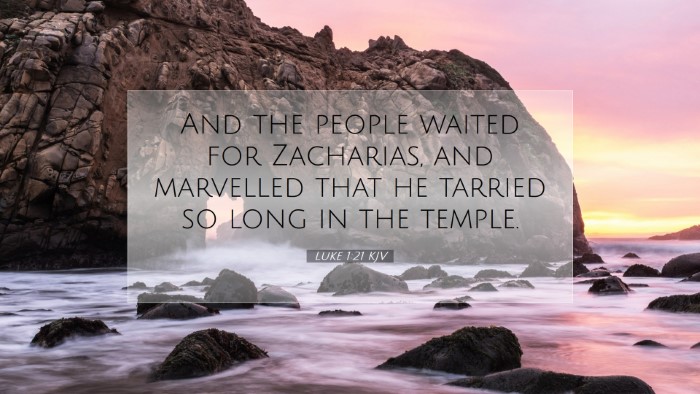Commentary on Luke 1:21
Verse: Luke 1:21
"And the people waited for Zacharias, and marveled that he tarried so long in the temple."
Introduction
This verse occurs within the context of the preparation for the arrival of John the Baptist, a significant precursor to the ministry of Jesus Christ. It frames the expectation of the people, their response to divine interventions, and the overarching theme of God's timing.
Contextual Background
To fully appreciate the profundity of Luke 1:21, one must consider its placement within the broader narrative of the Gospel of Luke. Zacharias, a priest of the division of Abijah, has been visited by the angel Gabriel with the stunning announcement of the impending birth of his son, John. This promises to fulfill the prophetic words given long ago regarding the coming forerunner of the Messiah.
Insights from Commentary Sources
Matthew Henry's Commentary
Henry notes that the delay of Zacharias in the temple corresponds with the divine appointment and is indicative of the special nature of the event taking place. His prolonged absence signifies not only the weight of the angelic message but also the serious nature of priestly duties. The people’s wonder reflects their piety and the expectation of a divine encounter.
Albert Barnes' Notes on the Bible
Barnes emphasizes the communal reaction of the people, highlighting their waiting as both an act of faith and a communal experience of penitence. He suggests that their marveling at Zacharias’ delay illustrates a lack of understanding of God’s fullness of time; they were unaccustomed to such extended periods of divine communication. This delay asks his audience to contemplate the nature of God’s revelations and how often they can be misunderstood or underestimated.
Adam Clarke's Commentary
Clarke interprets the reaction of the people as not merely one of surprise but also one that reveals their spiritual hunger and expectation for God to act. The emphasis on their marveling showcases a people who were prepared to receive the extraordinary; it served as a moment of revelation regarding the spiritual state of Israel. Clarke points out that this also sets the stage for the impending miracle of John's birth, which would be a sign of God's active engagement with His people in response to their longing for redemption.
Theological Implications
Luke 1:21 is rich with theological themes that resonate in the lives of believers. The verses evoke reflections on waiting, expectancy, and the reality of divine timing. In stark contrast to the hurried pace of contemporary life, the text invites readers to dwell in a posture of waiting and trust in God’s unfolding plans.
Divine Timing
The divine orchestration of events underscores a vital truth about God’s timeline, which remains perfect. The delay of Zacharias is not punitive; rather, it reveals the mystery of God’s purposes, resonating with the larger biblical theme of waiting on the Lord. This can encourage pastors and theologians to remind their congregations and students of the importance of patience and hope in God amidst uncertainty.
Community and Expectation
The people's response invites further reflection on communal faith. Their willingness to wait for Zacharias demonstrates a collective acknowledgment of holiness and a commitment to the rituals of worship conveyed by their presence at the temple. It serves as a reminder of the church’s role as a waiting community, actively involved in the anticipation of God’s actions in the world.
Application for Believers
For scholars and practitioners alike, Luke 1:21 challenges us to examine our own reactions to God’s apparent delays in our lives and ministries. Are we marveling at what God is doing, or are we growing impatient? This verse invites a reflective response: to seek an understanding of how God works in His timing while exploring the depths of faith within communities.
Conclusion
In conclusion, Luke 1:21 brings forth significant lessons on the nature of waiting, the importance of community in faith, and the profound truths of divine timing. The insights gathered from the commentaries of Henry, Barnes, and Clarke collectively enrich our understanding of this verse and help us appreciate its impact on both individual faith and the broader community of believers as they prepare for God’s revelation through John the Baptist and ultimately through Jesus Christ.


